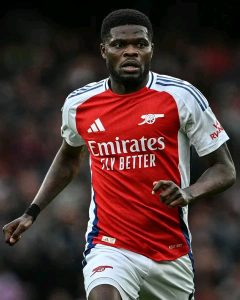
The Bulls Are One of the Few Teams That Can Feasibly Poach an Ascending Guard in Free Agency.
As the 2025 NBA free agency period approaches, the Chicago Bulls find themselves in an unusual position: relevant, flexible, and opportunistic. Despite a tumultuous past few seasons filled with injuries, inconsistency, and front-office question marks, the Bulls are now one of the few teams with the means—and motive—to poach a rising backcourt star in free agency.
With limited teams possessing the combination of cap flexibility, roster need, and market appeal, the Bulls are primed to strike. As other franchises are hamstrung by bloated contracts or stuck in rebuild mode, Chicago offers something rare: a major-market team with a clear backcourt vacancy, upward momentum, and the financial space to make a splash.
Let’s break down why Chicago is uniquely positioned this summer, who they could realistically target, and what it might mean for the franchise going forward.
Why the Bulls Are in Play
1. Cap Flexibility
Over the past year, the Bulls have subtly set themselves up for financial mobility. With the likely departure of DeMar DeRozan—unless he re-signs at a significant discount—and potential trade winds swirling around Zach LaVine, Chicago could open substantial cap space this offseason. Lonzo Ball’s contract, mostly insured and non-guaranteed moving forward, offers another lever to pull.
If the Bulls move on from LaVine (or stretch his deal), and DeRozan walks, they could open over $30 million in cap space—enough to offer a competitive salary to an emerging guard, especially if they work sign-and-trade avenues.
2. Backcourt Vacuum
Chicago’s backcourt is a work in progress. Coby White has emerged as a capable scorer and secondary ball handler, but he’s not a franchise floor general. Ayo Dosunmu is a valuable rotation piece, but also not a centerpiece. With Ball likely out for the foreseeable future, the Bulls have an opening at point guard or combo guard for a dynamic young player to step into—and potentially lead.
This combination of positional need and playing time opportunity makes Chicago highly appealing to guards looking to prove themselves on a bigger stage.
3. A Market Players Care About
Chicago remains one of the league’s major markets. With its rich basketball history, massive media presence, and strong fanbase, it still holds cachet—particularly for young players ready to raise their profile. Unlike smaller-market teams that might offer playing time but not visibility, the Bulls can offer both.
When a player wants to be “the guy” and get recognition for it, Chicago can provide the perfect platform.
Who Could Be Poached?
In a free agent market not exactly bursting with superstars, ascending guards will be at a premium. Here are a few names that Chicago could realistically target—players who are young, improving, and potentially gettable.
1. Immanuel Quickley (Toronto Raptors – RFA)
Quickley had a breakout year in Toronto, showcasing his scoring chops, improved playmaking, and defensive tenacity. He’s a restricted free agent, which complicates things—but the Raptors have multiple young guards and could balk at matching a rich offer sheet if it comes early and aggressive.
Chicago could offer Quickley the keys to the offense and a long-term runway, especially if they part ways with LaVine. His fit alongside Coby White and Dosunmu would give the Bulls a fast, aggressive backcourt that can shoot and defend.
2. Tyus Jones (Washington Wizards – UFA)
Jones is less of a “rising star” and more of a “proven starter still ascending.” After years as an elite backup in Memphis, he took on starting duties in Washington and thrived, showcasing one of the league’s best assist-to-turnover ratios.
He’s not a high-ceiling star, but Jones is dependable, stabilizing, and efficient. For a Chicago team seeking structure and IQ, he could be the perfect free-agent pickup—and likely at a more manageable price than a full max.
3. Malik Monk (Sacramento Kings – UFA)
Monk blossomed in Sacramento as a microwave scorer and secondary creator. He’s a pure bucket-getter who can swing games off the bench or in crunch-time lineups. With DeRozan likely gone, Monk could step into a major scoring role on the wing while still sharing ball-handling duties.
Monk’s market will be competitive, but Chicago’s cap space and starting opportunity could prove enticing.
4. Cole Anthony (Orlando Magic – RFA)
Another restricted free agent who might be squeezed out, Cole Anthony has shown flashes of brilliance but is buried behind a glut of guards in Orlando. If the Magic prioritize Anthony Black and Jalen Suggs, they may not be inclined to match a hefty offer for Anthony.
He’s a riskier bet, with less consistency than Quickley or Jones, but his ceiling is high. As a scorer with range and swagger, Anthony could thrive with a fresh start.
Strategic Implications for the Bulls
Rebuilding Without Tanking
Signing a rising guard in free agency doesn’t necessarily mean pushing all-in. In fact, it could allow the Bulls to reset while staying competitive—a key goal for a front office wary of full-blown rebuilding. By adding a 23- or 24-year-old guard on a multi-year deal, Chicago can realign its timeline without bottoming out.
Trading LaVine or Letting DeRozan Walk
This plan hinges on at least one major shift: either DeRozan departs, or LaVine is moved. Both scenarios create flexibility and open roles that a younger guard could fill. It’s time for the Bulls to reorient toward the future—and that means tough decisions on veterans who have defined the last few years.
Re-Establishing Identity
For too long, the Bulls have lacked a clear identity. A dynamic, defensive-minded, or high-octane guard could help define that. Whether it’s Quickley’s grit, Jones’s composure, or Monk’s firepower, Chicago has a chance to put its stamp on the next generation of its backcourt—and build a team that fans can believe in again.
Final Thoughts
While many teams face murky outlooks this summer—either capped out, in tank mode, or stuck in mediocrity—the Chicago Bulls have a rare window of clarity. They need talent, they have money, and they have the market to make a compelling case. As one of the few teams capable of poaching an ascending guard in free agency, the Bulls must be aggressive, creative, and ready to commit to a new direction.
The right guard could not only fill a roster need but help reshape the Bulls’ identity for the rest of the decade. In a league driven by guard play, Chicago has a golden chance to get its next cornerstone. The question now: will they take it.




